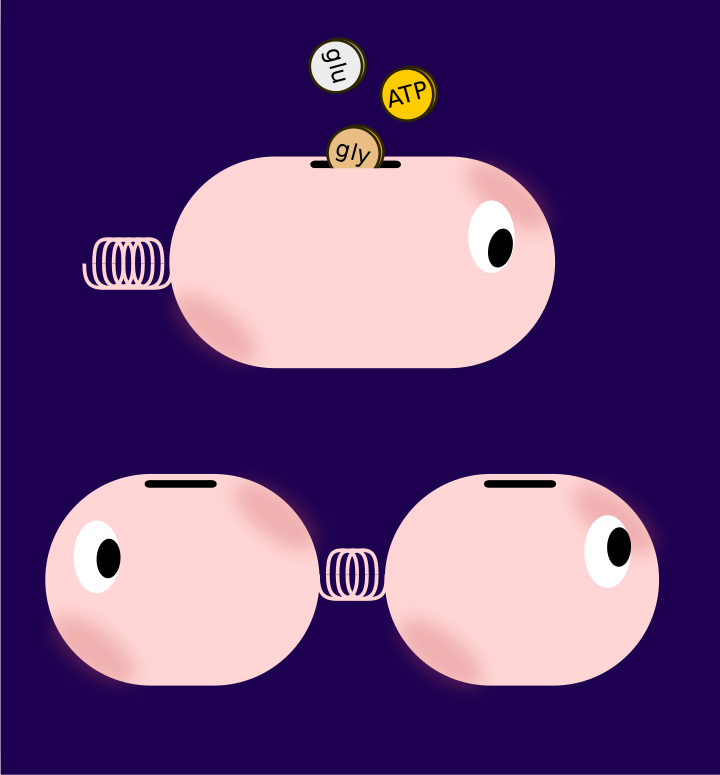Economic Principles in Cell Biology

Welcome | Forum | Young scholars | Textbook | Teaching materials | Summer school | Workshops | Contact
Summer school “Economic principles in cell biology” - Paris, July 10-13, 2023
Welcome - Lecture slides - Schedule and teachers - Exercises - Practical information
Course schedule (Monday July 10 - Thursday July 13)
Monday |
Tuesday |
Wednesday |
Thursday |
|||
 (10 am) (10 am) Exploring the economy of the cell Meike Wortel |
 (10 am) (10 am) Flux balance analysis Steffen Waldherr |
 (10 am) (10 am) Cell division coordination Mattia Corigliano |
Atelier SEnS
All day (9am - 5pm) | |||
 (11 am) (11 am) What makes up a cell? Diana Széliová |
 (11 am) - remote (11 am) - remote A dynamic view of metabolism Orkun Soyer |
 (11 am) (11 am) Behaviour under uncertainty David Lacoste / Olivier Rivoire |
||||
| Lunch break and get-together (noon) | Lunch break (noon) | Lunch break (noon) | ||||
|
Participants' projects (1 pm) Group discussions |
Book chapter review I (1 pm) Group work |
Book chapter review II (1 pm) Group work |
||||
 (2 pm) - remote (2 pm) - remote Autocatalytic cycles Rami Pugatch |
 (2 pm) - remote (2 pm) - remote Metabolic diversity Andrea de Martino / Daniele de Martino (remote) |
 (2 pm) (2 pm) Organ scaling and function Frédérique Noël / Cyril Karamaoun |
||||
|
Coffee break (3 pm) |
Coffee break (3 pm) |
Coffee break (3 pm) |
||||
 (3:30 pm) - remote (3:30 pm) - remote Self-replicator cell models Andrea Weiße |
 (3:30 pm) - remote (3:30 pm) - remote Return on investment in cells Hyun-Seob Song |
 (3:30 pm) (3:30 pm) Book - plans for the future Plenary discussion |
||||
|
A guided tour of the LPI (4:30 pm) Cecilia Patitucci and LPI students |
 (4:30 pm) (4:30 pm)Night Science Martin Lercher |
(4:30 pm)
Course feedback Get-together (7:30 pm) |
 Hybrid lecture - Hours are Paris time (CEST)
Hybrid lecture - Hours are Paris time (CEST)
Teachers and authors present in Paris
- Anne Goelzer, INRAE
- Cecilia Patitucci, LPI
- Cyril Karamaoun, Sorbonne Université
- David Lacoste, ESPCI Paris
- Diana Széliová, Universität Wien
- Elad Noor, Weizmann Institute of Science
- Frédérique Noël, Sorbonne Université
- Mattia Corigliano, IFOM
- Meike Wortel, Universiteit van Amsterdam
- Noé Lahaye, INRIA
- Ohad Golan, ETH Zürich
- Olivier Rivoire, Collège de France
- Simon Castellan, INRIA
- Sophie Quinton, INRIA
- Steffen Waldherr, KU Leuven
- Wolfram Liebermeister, INRAE
Teachers giving lectures online
- Andrea De Martino, Politecnico di Torino
- Andrea Weiße, University of Edinburgh
- Daniele de Martino, Biofisika Institute
- Hidde de Jong, INRIA
- Hyun-Seob Song, University of Nebraska - Lincoln
- Martin Lercher, Heinrich-Heine-Universität Düsseldorf
- Orkun Soyer, Warwick University
- Rami Pugatch, Ben Gurion University
Night Science
On Tuesday we hosted a session of Night Science, a course on the creative scientific process, developed by Itai Yanai and Martin Lercher.
Website: night-science.org
Editorials: www.biomedcentral.com/collections/night-science
Podcast: nightscience.buzzsprout.com (with links to spotify etc.)
Atelier SEnS
One the last day, we hosted a one-day Atelier SEnS workshop about political/personal questions, including one's personal values and how they relate to our work as researchers. This workshop for young scientists or engineers (called Atelier SEnS: science, environment, societies) was held by Sophie Quinton, Simon Castellan, and Noé Lahaye. The workshop provides an opportunity, especially for PhD students, to think about defining decisions for their future life and career. More information can be found here.
The SEnS workshop has been designed to provide tools and resources for this purpose, to a group of 5 to 15 people working in academia. It aims to offer a venue to collectively discuss the consequences of our research, the values that it conveys, and more generally how scientific research fits in the Anthropocene; provide an introduction to science and technology studies, in particular to the philosophy, history, and sociology of science; and initiate a collective construction of a social and environmental responsibility of research. The objective is not to reach a consensus between the participants, but rather to provide everyone with the opportunity to reflect and take a stance on current environmental issues in a respectful and constructive setting. By confronting ideas and sharing knowledge, the goal is then to find common ground.